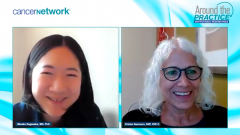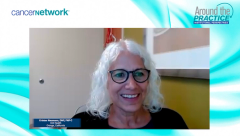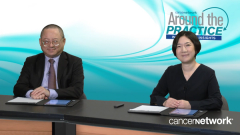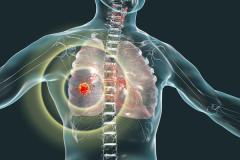
Opinion|Videos|October 16, 2023
Implementing Dose Reductions and Dose Holds in Patients With EGFR-Mutated NSCLC Receiving TKIs
Kristen Neumann, DNP, FNP-C, emphasizes the importance of early assessment and potential dose reductions or holds when patients on treatment for EGFR-mutated non-small cell lung cancer show adverse effects, while Misako Nagasaka, MD, PhD, stresses the need for accurate symptom history and supporting lab work to ensure patient safety.
Advertisement
Newsletter
Stay up to date on recent advances in the multidisciplinary approach to cancer.
Advertisement
Latest CME
Advertisement
Advertisement
Trending on CancerNetwork
1
Modifiable Risk Factors Suggest Potential for Improving Cancer Prevention
2
Barriers to CAR T-Cell Referral and Center Access in Multiple Myeloma
3
2026 Tandem Meetings: What’s the Latest Research in Multiple Myeloma?
4
Real World Outcomes of CAR T-Cell Therapy in Multiple Myeloma Including Older and Comorbid Patients
5












































